COVID-19 FORCES BUSINESSES TO INVEST IN HOTEL TECHNOLOGY
A health crisis that quickly turned into an economic crisis, COVID-19 has a particularly strong impact on tourism and the hotel industry. After the pandemic, hotels will need to find new techniques to limit their losses and make up for lost profits. Innovative hotel technology and investments in customer relations may be of great help.

A health crisis that quickly turned into an economic crisis, COVID-19 has a particularly strong impact on tourism and the hotel industry. After the pandemic, hotels will need to find new techniques to limit their losses and make up for lost profits. Innovative hotel technology and investments in customer relations may be of great help.
Companies focusing on customer relations try to improve the prospect of better tourist experience and to propose offers and services customized to the travelers. And what could be better than technology to maintain customer relations and convert visitors to the customers?
Normally, 98% of visitors leave a hotel site without making a reservation. During this period of crisis, it is all the more important to maximize your chances of conversion because every inquiry counts.
Booking Options Remains Available
Although tourism is at a standstill, there is still a need to escape, travelers continue to dream, and closing bookings could curb this desire. Keeping reservations open shows that your hotel is still available and is ready to reopen when the time comes. The mistake you shouldn't make is to wait until business resumes. A hotel that reopens its doors without a reservation is at its worst.
Once the health crisis is over, there will be new opportunities for hoteliers to seize: between the borders closed until further notice and health fears, many travelers will choose to stay in their home country rather than go abroad.
Offering flexible terms and conditions in their booking engine or the possibility of cancelling their stay by leaving a deposit will reassure the traveler and ensure the hotel's cash flow.
Every traveler is looking for the best possible price on his or her reservation. Thanks to a price comparison widget on the hotel's website (vs. the price on OTAs), the visitor will be able to see live that he or she will get a better deal by booking on the hotel's official website. So, the price will no longer be an obstacle to the reservation and will push the traveler to make the purchase.
Catching the attention of visitors is not always easy. Another smart hotel technology tip is a pop-up window that allows you to display personalized offers based on the user’s profile and navigation on the site. A visitor has spent several minutes looking at the hotel's rooms and offers but seems to be about to leave the site? Setting up a pop-up with a promotional offer will incite the traveler to stay and book: 1/3 of visitors decide to finally stay after receiving an incentive.
For example, at the end of the crisis, a hotel can display a message containing a promotion for a visitor who has spent more than 3 minutes on the website in order to get him/her to make a purchase: "Need a change of scenery? Take advantage of -20% off your reservation today".
Live Chat
Since the beginning of the crisis, traffic on hotel websites has been low and bookings are even lower. It is, therefore, necessary to be available as soon as a visitor finally visits the site and takes an interest in the hotel. Chat hotel technology is a good communication channel on websites. Rather than a one-way exchange like in advertisements, it is based on a real conversation between the traveler and the hotel. Although there are robotic chats, having a human on the other side of the screen becomes almost essential right now as visitors are looking for real contact.
A live chat will make the booking process more fluid and personalized. The hotel can respond to visitors' requests in real-time 24 hours a day to provide an offer adapted to travelers' profiles. The aim is to accompany them in their quest for future travel.
During this rather special period, it will also be an effective means of reassuring customers about the hygiene measures and precautions put in place when business resumes.
Social Networks
Being present on at least one social network is essential in a communication strategy. These are platforms that allow the creation of a strong link between travelers and the hotel. But they are also excellent showcases. An Instagram account makes it possible, among other things, to differentiate one's offer and to broadcast exclusive promotions to visitors who are most attached to the brand.
During this period of crisis, social networks are useful to show that the hotel's teams are ready for the resumption of activity by showing, for example, the "backstage". It could also be a good idea to show that life is resuming post-confinement, by presenting local mini-guide highlighting activities in the surrounding area.
Means of Payment
Improving the payment experience is a major issue to avoid basket abandonment and convert reluctant travelers. Offering flexible means of payment allows an optimization of the entire purchasing process: combining two means of payment (gift card and credit card), PayPal... The more numerous and flexible they are, the less likely visitors will abandon their shopping basket.
Hoteliers are likely to be overwhelmed when business resumes. Between reservations, cancellations and complaints, what is certain is that this period will not be a restful one.
In order to put all the chances on your side, it is important to multiply your levers and set up new conversion channels.
Setting up a Call Center
The customer relations will be at the heart of the recovery, but how can we not let a potential customer getaway? It is obvious that hoteliers do not always have the time for long telephone conversations with travelers. Yet 1 out of every 3 calls turns into a sale. Setting up a call center makes it possible to delegate incoming calls and maximize reservations by putting customer relations at the forefront. The DNA of the hotel business is the "service", and today's travelers are looking for quality support from the moment they make a reservation.
Emails, Emails
Emailing is an excellent way to keep in touch with the traveler, as long as it is not abused. It allows the hotel to offer premium services in order to maximize its margin (discount on an upgrade at check-in, free breakfast, discount on spa or gym...).
Tourists who will travel locally this summer will choose a hotel according to its location and the activities in the surrounding area. Emailing is a good way to communicate about a destination by offering packages or gift boxes including accommodation and activities. For example, a city hotel can offer a package of "3 nights stay and 3 visits to the historical monuments of the city".
During confinement, it is essential to build customer loyalty and to advise customers in order to maintain a bond. When business resumes, it will be necessary to prioritize customer relations. Hotel technology will be the tools that will enable the offer to be personalized and make a difference to over-solicited travelers. The season will be short this summer for hoteliers, who will have to redouble their efforts to attract travelers.



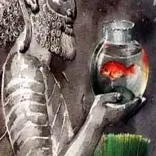

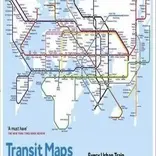




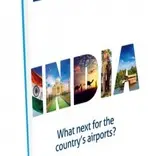


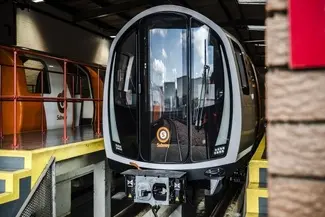
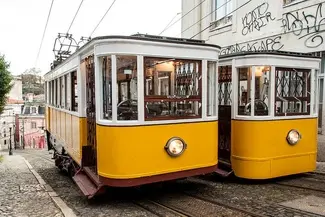
![AIRBUS A380 [MORE THAN 600 PASSENGER’S CAPACITY PLANE]](https://cdn.tinn.ir/thumbnail/4jCp4EQvCU0b/IjHVrSYQrIAqIzXuTzADR7qLYX4idQT4nfq__26E5SCUPLMqfhWkWajvuO9Wfq1ql1TjV4dhkrHliNQU82kMpo2NNftT_NGEwHc9KXtN_rk731bmifa2IQ,,/airbus-a380-structure1.jpg)

Send Comment